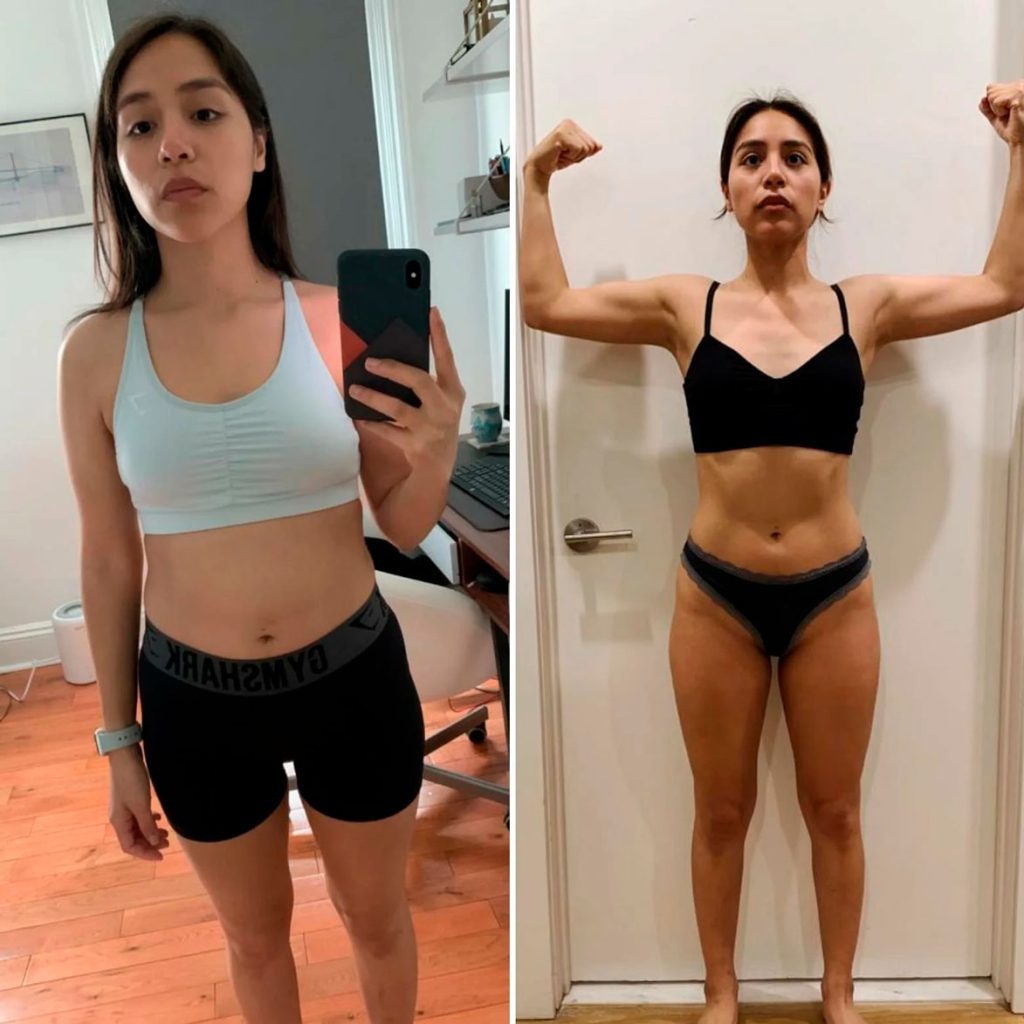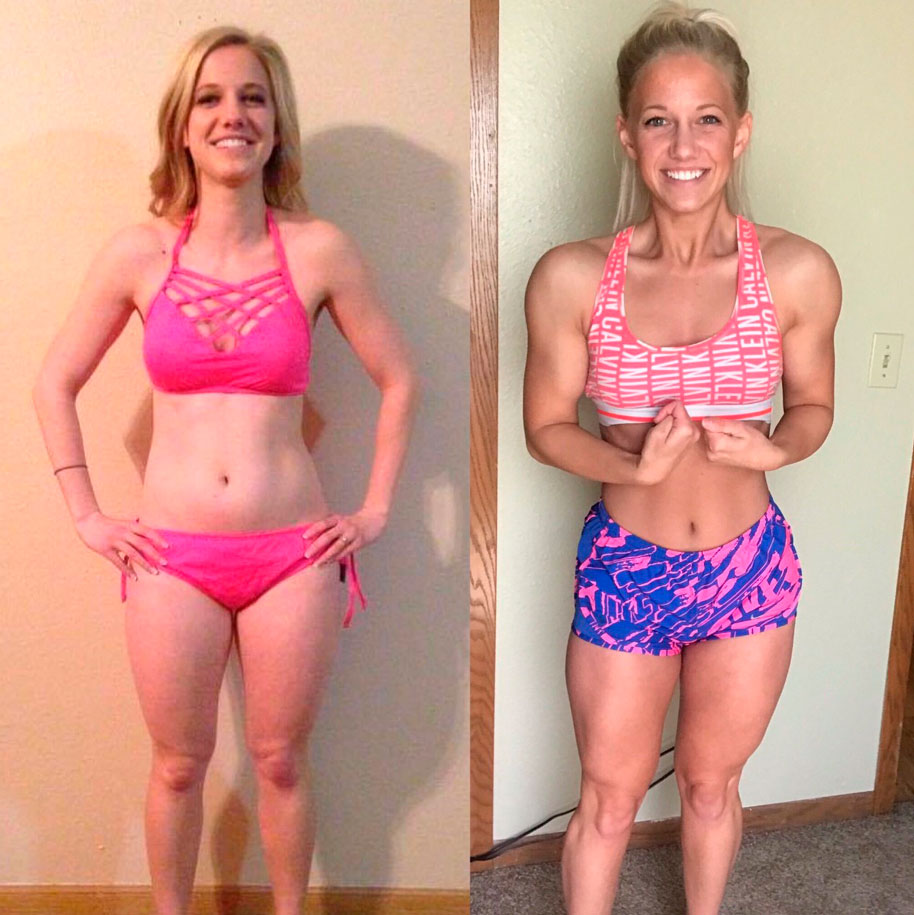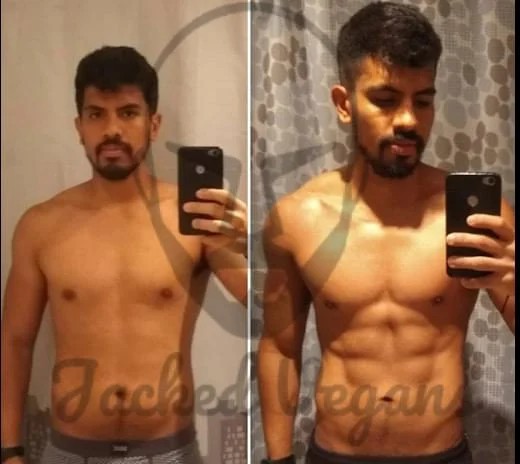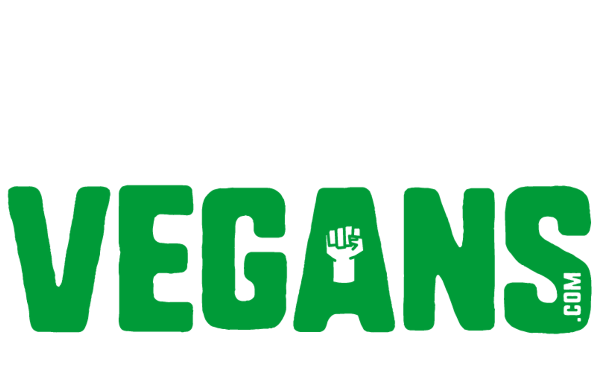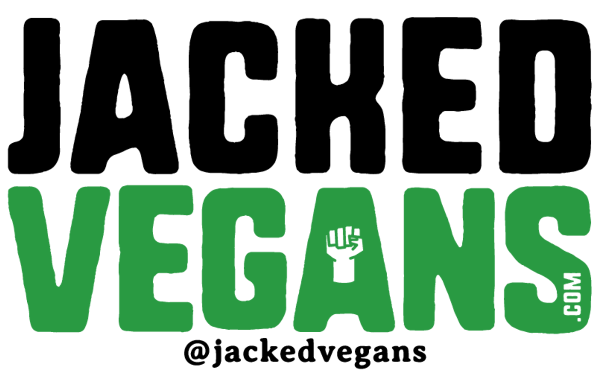Have you ever wondered why vegans are so skinny?
Perhaps you have thought about making the switch to a vegan or plant-based diet yourself to lose weight but are worried that you might lose your muscles and strength, and end up as a skinny vegan?
Or maybe you are looking for the fastest way to lose weight?
If you answered yes to these, you’re in the right place. But first, let’s do some serious myth-busting.
Are all vegans skinny?
Whenever people say vegan, their first impression is someone skinny. Perhaps they have not met anyone vegan, and they’re just basing their judgment based off of some vegan influencers who have 1 million followers on Instagram or 700,000 subscribers on YouTube.
First of all, not all vegans who convert to veganism lose weight. Some do it to save more animals while others do it for the environment, campaigning to reduce the carbon footprint on Earth and slow down global warming. Others do it for health reasons.
It would be just a bonus if they lost weight by transitioning to a plant-based diet.
And then some vegans gain weight, some are skinny fat, others are, well, on the chunkier side, and some are jacked!. These are possible (more on these in a minute).
So no. Not all vegans are skinny, which brings me to my next point.
Is it possible for vegans to be overweight?
A vegan can be overweight, just as an omnivore can be skinny or underweight.
How?
It depends on a couple of things:
- How many calories you consume
- How many calories you burn
If you switch to a plant-based diet but eat more calories than you burn, you’ll gain weight. You still have to be mindful of your calorie consumption and where you get your calories. If you eat too much of everything, you could still gain weight, even if it’s vegan.
Weight gain or weight loss doesn’t depend on whether you’re vegan or not. It depends on energy balance – the amount of calories you consume vs. the amount of calories you burn. This image explains it:
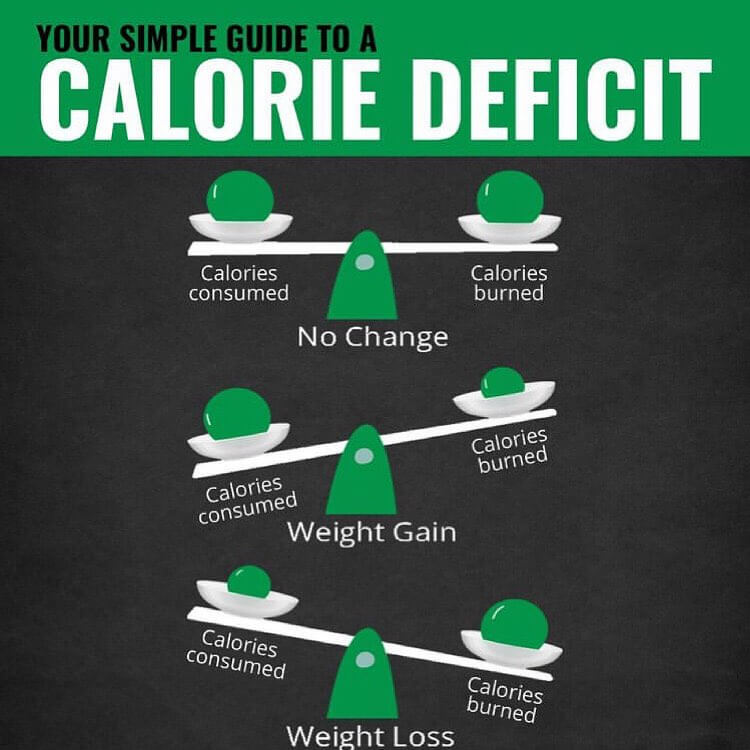
Some underprepared to transition to a vegan diet quickly find out how challenging it could be to get their next vegan meal and resort to eating vegan junk foods.
So, can a vegan be overweight? Yes!
On the other hand, an omnivore can be skinny or underweight, depending on how much they eat, exercise, and lift weights.
What is a skinny fat vegan?
Healthline describes skinny fat as having an average body mass index (BMI) but having a high body fat percentage and low muscle mass. It’s possible that the person does not have much muscle tone and is not physically fit even though their weight is normal and they have thin bodies.
Skinny fat people are still at risk of developing high cholesterol, high blood pressure, and insulin resistance.
Why are people, including vegans, skinny fat? There are plenty of factors, some of them are:
- Diet – A diet rich in junk food and high-calorie meals will most likely lead to fat and weight gain. Also, most people who go vegan don’t consume enough protein, which is necessary supplement to build muscles.
- Physical activity – not lifting weights means less muscle development, especially those getting up there in age. People lose muscle mass as they grow older, and not exercising doesn’t help. Also, lack of movement and sedentarism lead to weight and fat gain due to very low-calorie usage.
- Overeating – not counting the calories you consume can increase fat storage due to the excess calories.
Being skinny fat is not usually a description associated with vegans, but it is accurate.
Why do some vegans get skinny when they first start?
A plant-based diet consisting of plant-based protein, fiber, and healthy fats is very filling but low in calories, which will help people lose weight when combined with exercise.
However, becoming skinny when transitioning to a vegan diet is not always the case, especially if done incorrectly. Some people restrict themselves to a diet similar to fried tofu and broccoli (bland), making it hard to stick to due to its lack of appeal, taste, and variety, and they don’t get enough calories in their diet.
They usually quit after a short period and return to their old eating habits.
Others resort to becoming junk food vegans, vegans that eat plenty of junk food that may be vegan but low in nutritional value and high in calories. And others might revolve around a plant-based diet but consume more calories than they need.
Others eat nothing but whole foods but don’t consume sufficient protein to retain and gain muscle mass.
Hence, it’s crucial to research and get guidance from people with experience to lose weight as a vegan.
(Click here to apply to be a Jacked Vegan)
Why do some vegans look weak?
Saying that somebody looks weak is subjective. However, if somebody moves lethargic and constantly complains about not having enough energy, they’re probably not getting enough calories, vitamins, nutrients, and quality sleep.
Another reason people might think someone looks weak is their body composition. A person who doesn’t lift weights but runs a lot and does not consume enough calories will lose a lot of muscle mass, making them look “weak” and skinny.

Again, this can happen to both vegans and nonvegans.
However, some vitamins and minerals are hard to obtain for vegans, putting them at risk for vitamin deficiency. Micronutrients such as vitamin B12, vitamin D, calcium, long-chain amino acids (omega-3) fatty acids have limited bioavailability.
Suppose they do not get enough vitamin B12, vitamin D, Omega 3, Iron, Zinc, Calcium, and Iodine. In that case, they can experience symptoms like low energy levels, and poor mood, so proper supplementation plays a crucial role for vegans.
Do vegans age faster?
Let’s talk about this at face value.
Let’s say you went to a party and met Jake. He doesn’t smoke, drinks occasionally, lifts weights two to three times a week to maintain muscle mass, eats plenty of whole food, plays sports sometimes with his buddies, tries his best to get seven to eight hours of sleep each night, doesn’t do drugs, meditates, and spends time outdoors to destress.
It won’t surprise you to find out that Jake is 42 years old but looks much younger than that.
Now, I don’t care if you’re vegan or not, but if you don’t take care of your body, you’re going to look and feel old, disease will creep up on you, and you will possibly feel aches and pains throughout your body.
On another note, following a vegan diet consisting of whole foods like plant-based proteins, legumes, grains, fruits, and vegetables will help strengthen your immune system and potentially help avoid obesity, diabetes, certain cancers, heart disease, and possibly better health.
There are plenty of studies such as this that suggests plant-based diets are beneficial for healthy individuals, including those that are obese and with type 2 diabetes.
If you want to live longer and look younger, the quality of your diet and your lifestyle choices play a huge role.
How to safely lose weight on a plant-based diet
By now, you should already have the idea that being a skinny vegan is not so common after all; some can be skinny fat and even overweight; vegans could also look weak with less muscle definition.
Whew! That’s a lot of negativity right there and probably not the reason you’re here. So if you’re still here, you deserve a reward and find out how to lose weight safely and healthily as a vegan.
So how does following a vegan diet help lose weight and attain a smaller, lighter body? This could be another blog post on its own but to summarize, here are some tips that we give our clients at Jacked Vegans:
Consume more colorful foods
As we mentioned a while ago, following a vegan diet can be challenging if you’re not prepared. Fortunately, we got you covered on that too, and you can read more here. Planning your meals around whole foods is the best way to consume fewer calories while getting plenty of nutrition to feed your body what it needs to function optimally while burning fat.
Hit the weight room
Cardio is nice to maintain cardiovascular health. Still, if that’s all the workout you’ll do, eat fewer calories, and neglect lifting weights, you’re going to lose plenty of muscle mass which would make you look, well, like a skinny vegan (if that’s what you want, go for it of course). And if you’re going to hit the weight room, you also need to…
Feed your muscle
Another misconception about vegans is that they don’t get enough protein from their diet. When you work out hard in the gym, getting enough protein to help repair and build bigger, stronger muscles is essential.
There are plenty of plant-based protein sources to choose from, and they make a tasty meal too. Take a look at this lovely plate.

A helpful tip is to consume a wide variety of protein sources to combine foods with different amino acid profiles that complement each other.
Learn to track your calories
Several apps help you track the calories you consume; MyFitnessPal, Noom, and Cronometer. But if you want something simple and effective, you can follow the plate method: ⅓ of your plate consists of protein, ⅓ consists of starchy carbs, and another ⅓ consist of fibrous carbs.
Drink your way to skinny
Don’t forget to drink plenty of water instead of drinking sugary drinks like cola and “fruit juices.” Plenty of times, water can help you feel full even without adding calories.
Supplements are your best friend
Vegan protein powders, as well as the best vegan multivitamins (link to post) available in the market, will make your life easier. In an ideal world, you can get everything you need by following a balance plan-based diet, but if that’s not possible, you can consume supplements to fill the gaps in your nutrition.
Bonus tip: don’t forget to get your Z’s
Sleeping is a fantastic way to lower your cortisol levels and produce human growth hormones to help build metabolically active muscles. So try your best to get seven to eight hours of sleep and watch in amazement as the fat melts off your body.
Bonus tip #2: be patient
There is no way you’re going to burn the fat you put on in 10 plus years of bad habits in one or two weeks, so give yourself some time. Give your body time to adjust to a vegan diet, be consistent, try your best to eat better, be more active, build better habits, and you’ll see results.
Yes, it’s possible to lose weight, burn fat, and even build muscle on a vegan diet. But there’s a right way to do it. Focus on consuming whole plant-based foods, consume enough calories and proteins, track your calories, lift weights, and be patient and you’ll achieve your goal.
Skinny does not always mean fit
Instead of aspiring to be a skinny vegan, why not aim to be a fit vegan, or maybe even (shameless plug) a Jacked vegan? A person that’s healthy, strong, full of energy, while helping save animals from cruelty.
You could be skinny and weak, or you could be strong and fit, minus the extra body fat.
Don’t be a junk food vegan.
Consume enough protein and calories to protect your precious muscles.
Follow a diet consisting of plenty of plant-based foods to consume fewer calories.
Exercising and lifting weights to burn more calories and build muscles to get that strong, athletic, and fit look.
Fit feels much better than skinny. Just ask these Jacked Vegans:
